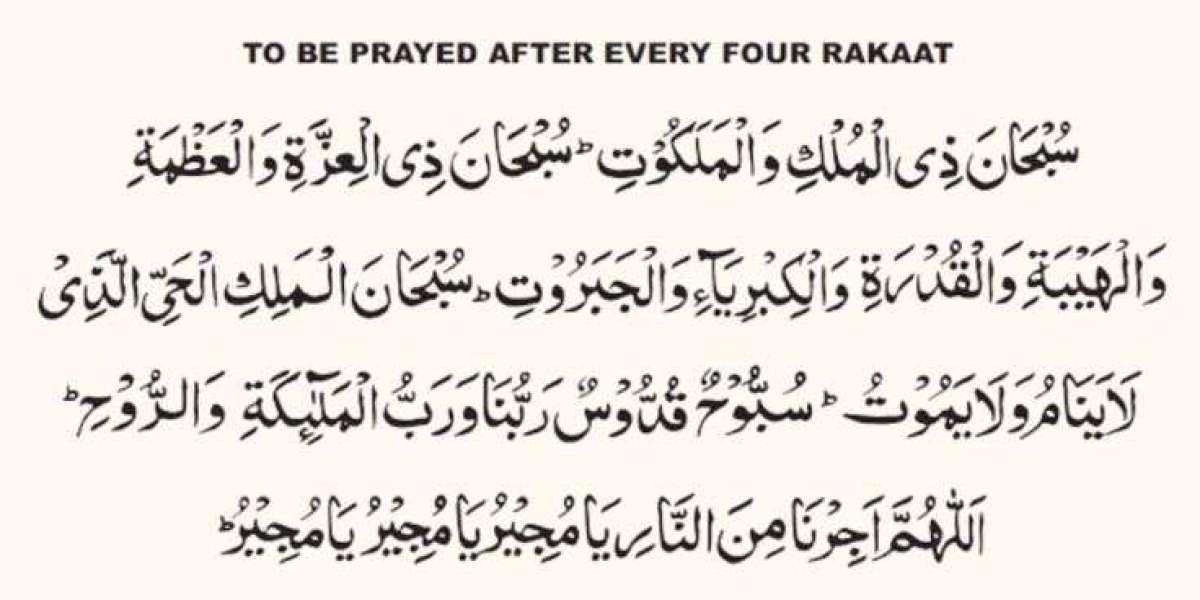Salat Taraweeh is a significant ibadah, and performing good deeds is the main focus of Ramadan; we try our hardest to win Allah’s forgiveness and mercy during this month. We do all kinds of worship in Ramadan, like fasting, praying sunnah and nafl prayers, reciting Quran, supplicating Dua, and more.
So, continue reading if you’re not sure what the Tarawih prayer is, how to pray it, its virtues, and more, let’s get started.
What is salat Taraweeh?
Every day, following salat al Aisha, we offer a specific prayer called Salat Taraweeh. In Arabic, the word Taraweeh itself means “to rest and relax.” We take a break after every two or four Rakat, which is why it is called tarawih.
Since the Taraweeh salah is a sunnah prayer, you are not required to pray it. The Prophet (peace be upon him) narrated that, “he who observes optional prayer (Tarawih prayers) throughout Ramadan, out of the sincerity of Faith and in the hope of earning reward will have his past sins pardoned.”
What is the virtus of Salat Taraweeh in Ramadan?
There are many virtues and rewards to the one who prays Salat Taraweeh in Ramadan. It’s one of the best acts of worship that brings us closer to Allah and strengthens our faith. Al-Hafiz Ibn Rajab said: “Note that in the month of Ramadan the believer engages in jihad al-nafs on two fronts: during the day by fasting and during the night by praying qiyam. Whoever combines these two types of jihad will be given reward without limit.”
The word Qiyam here refers to Taraweeh prayer.
Abu Hurayrah narrated that the Messenger of Allah (peace and blessings of Allah be upon him) said: “Whoever prays qiyam in Ramadan out of faith and in the hope of reward, his previous sins will be forgiven.” [Al-Bukhari (37) and Muslim (759)]
al-Nawawi said: What is known among the jurists is that this applies only to forgiveness of minor sins, not major sins. Some of them said: It may mean that the burden of major sins is reduced, so long as there are no minor sins.” (Fath al-Bari)
How is Salat Taraweeh different from the regular daily prayers?
Salat Taraweeh, also known as the “Night Prayer,” is a special prayer performed during the Islamic month of Ramadan. While it shares similarities with the regular daily prayers (Salat), there are several differences that distinguish it:
- Timing: Taraweeh is performed after the obligatory Isha prayer, usually late in the evening or at night, during Ramadan. In contrast, the regular daily prayers are performed at specific times throughout the day: Fajr (pre-dawn), Dhuhr (midday), Asr (afternoon), Maghrib (just after sunset), and Isha (night).
- Length: Salat Taraweeh is longer than the regular daily prayers. They typically consist of 8, 10, or 20 units of prayer (rak’ahs), with additional Quranic recitations and supplications between each set of units. In contrast, the regular daily prayers consist of a fixed number of units depending on the time of day.
- Voluntary Nature: While the regular daily prayers are obligatory (Fardh) for Muslims to perform, Salat Taraweeh is a voluntary (Sunnah) prayer. It is highly recommended but not obligatory, and its performance during Ramadan is considered a virtuous act that brings additional blessings.
- Emphasis on Quranic Recitation: Taraweeh prayers are characterized by the recitation of lengthy passages from the Quran. The imam (prayer leader) typically recites several sections (juz’) of the Quran over the course of Ramadan, aiming to complete the entire Quran by the end of the month. This emphasis on Quranic recitation distinguishes Salat Taraweeh from the regular daily prayers, where shorter passages are recited.
- Congregational Nature: While both Taraweeh and the regular daily prayers can be performed individually, Taraweeh prayers are often performed in congregation (Jama’ah) at mosques. This communal aspect fosters a sense of unity and spirituality among Muslims during the blessed month.
Overall, while Salat Taraweeh shares similarities with the regular daily prayers in terms of its format and physical movements, its timing, length, emphasis on Quranic recitation, and congregational nature set it apart as a distinctive and spiritually enriching practice observed specifically during the month of Ramadan.
How many Taraweeh rakat?
So, how long is Taraweeh? According to a hadith reported by Sahih Al Bukhari, the tarawih prayer rakat is eight rakat. Salat Taraweeh is prayed in sets of two Rakats, and you can pray as much as you can, you don’t have to pray all the Rakat.
Taraweeh how to pray?
Muslims prepare for Ramadan by doing good deeds and all kinds of worship in the month of Shaban so that when the month of Ramadan starts, they are more than ready for it.
Besides fasting in Ramadan there is a sunnah that is practiced throughout the whole month which is called Tarawih prayer, show to pray it? Here is how to pray how to pray Taraweeh at home or at the mosque step by step:
1. Make your intention to pray Tarawih:
The first step is to make your intention to offer Salat Taraweeh. You don’t have to say it out loud, say the following:
أُصَلِّي سُنَّةَ التَراوِيحِ رَكعَتَينِ لِلَّهِ تَعَالَى
Usolli sunnata-taraawiihi rak’ataini lillah ta’ala
I intend to pray the Sunnah prayer of Terawih two raka’at for Allah ta’ala
While if you are praying in a congregation then the intention of the imam will be as follows:
أُصَلِّي سُنَّةَ التَراوِيحِ رَكعَتَينِ إِمَامًا لِلَّهِ تَعَالَى
Usolli sunnata-taraawiihi rak’ataini imaamam lillah ta’ala
I intend to pray the Sunnah prayer of Terawih as the Imam two raka’at for Allah ta’ala
And your intention will be:
أُصَلِّي سُنَّةَ التَراوِيحِ رَكعَتَينِ مَأمُومًا لِلَّهِ تَعَالَى
Usolli sunnata-taraawiihi rak’ataini makmumam lillah ta’ala
I intend to pray the Sunnah prayer of Terawih as the Makmum two raka’at for Allah ta’ala
2. Say the Takbir:
The second step in performing Salat Taraweeh is the Takbir. Just raise your hands so that your thumbs are on the same level as your earlobes and say ‘Allahu Akbar’.
3. Place your right hand over your left hand and recite the opening Dua:
If you are able to pray Salat Taraweeh while standing you should stand. After saying the takbir put your hands gently over your chest. The right hand should be over your left hand. Then recite the opening dua (Iftitah dua), the opening Dua is only said in the first Rakah and it is a sunnah.
اللهُ أَكْبَرُ كَبِيرًا وَالْحَمْدُ لِلَّهِ كَثِيْرًا وَسُبْحَانَ اللهِ بُكْرَةً وَأَصِيْلًا .وَجَّهْتُ وَجْهِيَ لِلَّذِيْ فَطَرَالسَّمَاوَاتِ وَالْأَرْضَ حَنِيْفًا مُسْلِمًا وَمَا أَنَا مِنَ الْمُشْرِكِيْنَ . إِنَّ صَلَاتِيْ وَنُسُكِيْ وَمَحْيَايَ وَمَمَاتِيْ لِلَّهِ رَبِّ الْعَالَمِيْنَ لاَ شَرِيْكَ لَهُ وَبِذَلِكَ أُمِرْتُ وَأنَا مِنَ الْمُسْلِمِيْنَ
Allāhu Akbar Kabirā, Walhamdulillāhi Kathīrā, Wa Subhānallāhi Bukratan Wa aṣīlā, Wajjahtu Wajhiya lillazi Fatras-Samāwāti wal-Ardh, Hanīfan Musliman Wa-mā ana minal-musyrikīn, Inna ṣalātī, wa-nusukī wa-mahyaya, wamamātī Lillāhi Rabbil-‘ālamīn, Lā syarīka laHu wa bizālika umirtu wa ana minal muslimīn.
Allah the Almighty, the Greatest, All praises be upon Him, Allah The Most Exalted, day and night, I stand before The One Who created the skies and the lands, I sincerely submit to Allah and I am certainly not among those who associate Allah with other beings, Indeed my Salat, my good deeds, my life and my death are all for Allah The Lord of all the worlds, He has no partner nor parallel whatsoever, and I have been ordered as such, and I am from those who embrace Islam (submits).
4. Recite Quran:
After you finish saying the opening dua of Salat Taraweeh, say the Ta’awwudz:
أَعُوذُ بِاللَّهِ مِنْ الشَّيْطَانِ الرَّجِيمِ
A’uzu biLlāhi minash-shaytānir-rajim
I seek refuge with Allah from the accursed Shaytan
Then recite surah Al-Fatihah slowly:
بِسمِ اللَّهِ الرَّحمٰنِ الرَّحيمِ. الحَمدُ لِلَّهِ رَبِّ العالَمينَ
الرَّحمٰنِ الرَّحيمِ. مالِكِ يَومِ الدّينِ
إِيّاكَ نَعبُدُ وَإِيّاكَ نَستَعينُ
اهدِنَا الصِّراطَ المُستَقيمَ
صِراطَ الَّذِينَ أَنعَمتَ عَلَيهِم غَيرِ المَغضُوبِ عَلَيهِم وَلَا الضَّالِّينَ
Bismillāhir-Raḥmānir-Raḥīm.
Alḥamdulillāhi Rabbil-ʿālamīn.
Ar-Raḥmānir-Raḥīm.
Māliki yawmid-dīn.
iyyāKa naʿbudu wa-iyyāKa nastaʿīn.
Ihdināṣ-ṣirāṭal-mustaqīm.
ṣirāṭallazīna anʿamta ʿalayhim ghayril-maghḍūbi ʿalayhim wa-lāḍḍāllīn.
In the name of God The Most Compassionate and Merciful.
Praise be to Allah, Lord of all the worlds.
The Compassionate, The Merciful. Ruler on the Day of Reckoning.
You alone do we worship, and You alone do we ask for help.
Guide us along the straight path,
the path of those on whom You have bestowed Your Grace,
not those You are displeased with, or those who are astray.
Amiin.
Then say any other surah you know by heart or read it from the Quran while praying Salat Taraweeh.
5. Bend for Ruku:
After you finish reciting Quran in the first Rakah in Salat Taraweeh Say Allah Akbar then bend for Ruku and say the following three times:
سُبحَانَ رَبِّيَ العَظِيمِ وَبِحَمْدِهِ
Subhanna Rabbiyal-’azim wa bihamdiHi
Glory be to Allah, the Mighty, and praise be to He
6. Stand up:
After you finish the Ruku of Salat Taraweeh stand up again and raise your hands just like you did when saying the takbir and recite the following:
سَمِعَ اللهُ لِمَنْ حَمِدَهُ
Sami’ Allahu liman hamida
Allah has heard the one who praised Him
Then lower your hands and put them beside you and say:
رَبَّنَا وَلَكَ الْحَمْدُ
Rabbana walaKal-hamd
O Our Lord, to You are all the praises
7. Perform the sujud:
The next step in Salat Taraweeh is Sujud. Go into prostration while saying the Takbir but this time you won’t raise your hands. Your knees, palms, forehead, and nose should all touch the ground. Now say the following three times:
سُبْحَانَ رَبِّيَ الأَعْلَى وَبِحَمْدِهِ
Subhānna Rabbiyal-a’lā wa bihamdih
Glory be to my Lord The Most High, and praise be to He
Now sit on your knees and say the Takbir, again you won’t raise your hands, then say the following:
رَبِّ اغْفِرْ لِيْ وَارْحَمْنِيْ وَاجْبُرْنِيْ وَارْفَعْنِيْ وَارْزُقْنِيْ وَاهْدِنِيْ وَعَافِنِيْ وَاعْفُ عَنِّيْ
Rabbighfirlī warhamnī wajburnī warfa’nī warzuqnī wahdinī wa‘afinī wa’fu ‘annī
O Lord, forgive me, have mercy on me, cover for me my shortcomings, elevate my rank, provide for me, guide me, grant me well-being, and pardon me
When you finish saying the dua perform the second Sujud, repeat what you said in the first sujud.
8. Stand up:
Stand up again for the second Rakah of Salat Taraweeh. In the second rakah of the prayer, after you finish the second sujud stand up and say the takbir then repeat the same steps again as in the first Rakah.
9. Recite the Tashahhud:
After you sit from the second sujud of Salat Taraweeh recite the following:
التَّحِيَّاتُ لِلَّهِ وَالصَّلَوَاتُ وَالطَّيِّبَاتُ السَّلَامُ عَلَى النَّبِيُّ وَرَحْمَةُ اللَّهِ وَبَرَكَاتُهُ السَّلَامُ عَلَيْنَا وَعَلَى عِبَادِ اللَّهِ الصَّالِحِين. أَشْهَدُ أَنْ لا إِلَهَ إِلَّا اللَّهُ وَأَشْهَدُ أَنَّ مُحَمَّدًا عَبْدُهُ وَرَسُولُهُ
اللَّهُمَّ صَلِّ عَلَى مُحَمَّدٍ وَعَلَى آلِ مُحَمَّدٍ كَمَا صَلَّيْتَ عَلَى إِبْرَاهِيمَ وَعَلَى آلِ إِبْرَاهِيمَ إِنَّكَ حَمِيدٌ مَجِيدٌ. اللَّهُمَّ بَارِكْ عَلَى مُحَمَّدٍ وَعَلَى آلِ مُحَمَّدٍ كَمَا بَارَكْتَ عَلَى إِبْرَاهِيمَ وَعَلَى آلِ إِبْرَاهِيمَ إِنَّكَ حَمِيدٌ مَجِيد
“All the compliments are for Allah and all the prayers and all the good things (are for Allah). Peace be on you, O Prophet, and Allah’s mercy and blessings (are on you). And peace be on us and on the good (pious) worshipers of Allah. I testify that none has the right to be worshipped but Allah and that Muhammad is His slave and Apostle.
O Allah! Praise Muhammad, and on the family of Muhammad, as You Praised Ibraaheem, and the family of Ibraaheem; you are indeed Worthy of Praise, Full of Glory. And send blessings on Muhammad, and on the family of Muhammad, as you sent blessings on Ibraaheem, and the family of Ibraaheem; you are indeed Worthy of Praise, Full of Glory.”
10. Say the Salam:
Turn your head to the right and say:
السَّلَامُ عَلَيْكُم وَرَحْمَةُ الله
Assalamu alaykum wa-rahmatullah
Peace and Allah’s mercy be upon you
Then turn your head to the left and say the same. Now you have finished the first two rakat of Salat Taraweeh, all you have to do is to repeat the same steps in every two rakat until you finish salat al tarawih.
Is There is dua for Taraweeh?
There is no hadith about Salat Taraweeh dua, but here is a dua that Islamic Scholars recommend:
سُبْحَانَ ذِی الْمُلْکِ وَالْمَلَکُوْتِ ط سُبْحَانَ ذِی الْعِزَّةِ وَالْعَظَمَةِ وَالْهَيْبَةِ وَالْقُدْرَةِ وَالْکِبْرِيَآئِ وَالْجَبَرُوْتِ ط سُبْحَانَ الْمَلِکِ الْحَيِ الَّذِی لَا يَنَامُ وَلَا يَمُوْتُ سُبُّوحٌ قُدُّوْسٌ رَبُّنَا وَرَبُّ الْمَلَائِکَةِ وَالرُّوْحِ ط اَللّٰهُمَّ اَجِرْنَا مِنَ النَّارِ يَا مُجِيْرُ يَا مُجِيْرُ يَا مُجِيْر۔
“Exalted is the Possessor of the hidden and the manifest dominion. Exalted is the Possessor of Might, Greatness, Reverence, Power, Pride, and Majesty. Exalted is the Master, the Living, the one who neither sleeps nor dies. All-perfect, All-holy, Our Lord, and the Lord of the angels and the souls. O Allah, grant us refuge from the Hellfire. O Granter of refuge, O Granter of refuge, O Granter of refuge.”
Is salat Taraweeh Sunnah or obligatory?
Salat Taraweeh is a sunnah prayer, it is not obligatory but it brings many rewards and virtues to the one who prays it. The Prophet (peace be upon him) narrated that, “he who observes optional prayer (Tarawih prayers) throughout Ramadan, out of the sincerity of Faith and in the hope of earning reward will have his past sins pardoned.”
What is the ruling on praying Taraweeh at home?
Salat Taraweeh is an important act of worship, and it is often asked if one can pray it at home or if it should be prayed at the mosque, the simple answer is that for men it is better to pray it in the mosque but it is not obligatory, while for women it is better to pray at home.
Al-Bahuti said in Daqaiq Uli al-Nuha, 1/2245: “It is better to pray Tarawih in the mosque than at home because the Prophet (peace and blessings of Allah be upon him) gathered the people to pray Tarawih for three consecutive nights, as was narrated by `Aishah… and he (peace and blessings of Allah be upon him) said: “Whoever prays qiyam with the imam until he leaves, it will be as if he spent the whole night in prayer.”
Al-Shawkani said in Nayl al-Awtar (3/62): “Al-Nawawi said: The scholars agreed that it is mustahabb, but they differed as to whether it is better to pray it alone at home or in congregation in the mosque. Al-Shafi`i and a number of his companions, and Abu Hanifah, Ahmad, some of the Malikis, and others said that it is better to pray it in congregation as `Umar ibn al-Khattab and the Companions (may Allah be pleased with him) did, and as the Muslims continued to do because this is one of the manifest rituals. So praying it in congregation in the mosque is better, but if a man prays it on his own at home, or in congregation with his family, that is permissible.”
Al-Nawawi said in al-Majmu’, 3/526: “Tarawih prayer is Sunnah according to scholarly consensus… it is permissible to pray it alone or in congregation, but which is better? There are two well-known points of view concerning this; the correct view according to the consensus of the Companions is that it is better to pray it in congregation.”
What is the ruling on praying Taraweeh for ladies?
It is better for ladies to pray Salat Taraweeh at home but it is okay to pray it at the mosque. “Do not prevent your women from going to the mosque, even though their houses are better for them.” (Reported by Abu Dawud in al-Sunan, Bab ma ja-a fi khuruj al-nisa ila’l-masjid: Bab al-tashdid fi dhalik. See also Sahih al-Jami’, no. 7458)
Now we know all you need to know about Salat Taraweeh. We hope you found what you were looking for, and if you like the article share it with your family and friends, and don’t hesitate and drop a comment below.










IslamInnovator 4 w
This project is so versatile. The possibilities are endless!